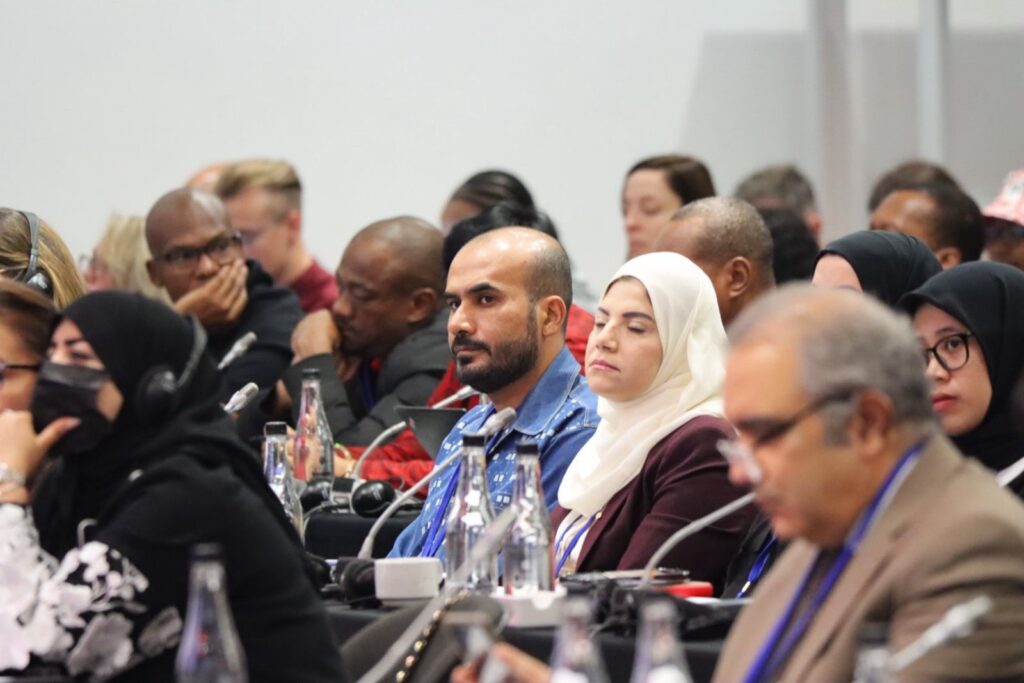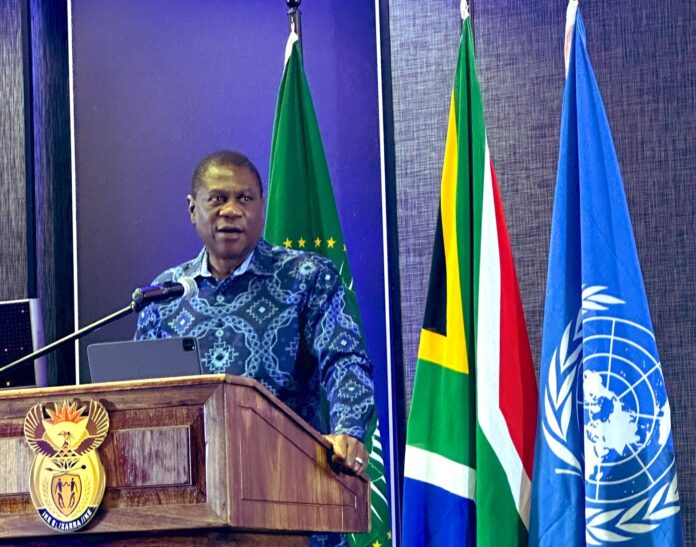Edwin Naidu
THE global teacher shortage in critical subjects such as Mathematics and Science, as well as mother tongue teaching is undoubtedly affecting learning outcomes globally.
This challenge was under discussion in various commissions during the 14th Policy Dialogue Forum (PDF), which took place at the Capital on the Park Hotel in Johannesburg from 26-28 February 2024, under the theme “Addressing global teacher shortages: Dignifying, diversifying and valorising the profession”.
The PDF aims to raise awareness among members of the Teacher Task Force (TTF) and other education stakeholders on crucial issues for the implementation of the Sustainable Development Goal Target 4c on teachers as part of the wider Education 2030 agenda.
During the Forum, participants were divided into various breakout sessions, where they held discussions on factors contributing to teacher shortages, including the exploration of ways to address interconnected challenges to mitigate against factors compromising teacher quality and working conditions; how to ensure safe working conditions; development of policies aimed at addressing teacher shortages; leveraging technologies to support the transformation of teaching and learning as well as investigating and discussing creative approaches for systems to transform perception of the teaching profession into a more positive light.


During the PDF proceedings, Chief Director for the National Institute for Curriculum and Professional Development (NICPD), Enoch Rabotapi, clarified the mismatch around teacher development and recruitment:
“Our main focus as the Department is to ensure that trained teachers meet the recruitment requirements so that they may be absorbed into the schooling system. As things stand, primary education requires more teachers who are skilled in mother tongue teaching.
“The DBE is currently conducting research in terms of estimating how many teachers will be needed across all academic streams so that we can repurpose our bursary schemes to focus on those specific areas where shortages exist.”
He added that, “research shows that of the 24,000 graduates, less than 25% are qualified in the Foundation Phase. As a result, the Basic Education Sector is experiencing limited teacher recruitment in the Foundation Phase, whilst recruiting more teachers for secondary education. We are, however, repurposing in order to attract and recruit young vibrant teachers.”
The rapporteurs from various thematic groups agreed that to address teacher shortage, it will be critical to review teacher training and recruitment strategies. They also recommended that the education system should prioritise teacher wellness, as well as school leadership and management to improve curriculum coverage in the General Education and Training (GET) and the Further Education and Training (FET) Bands. The recommendation made during the PDF should be cascaded to Provincial Education Departments (PEDs) to complement efforts aimed at accelerating education reform throughout the education system.


INSIDE EDUCATION






